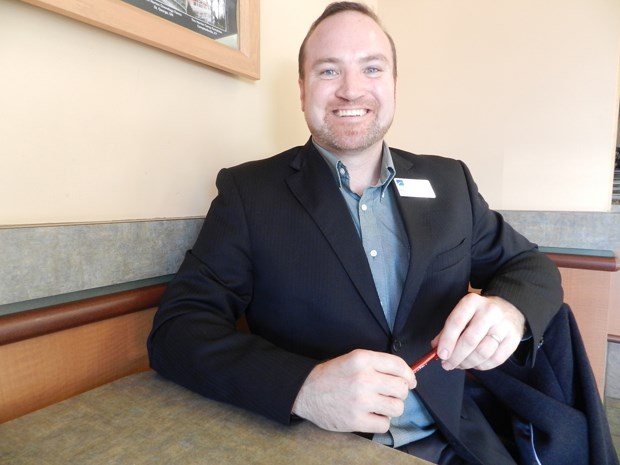When it comes to making your workplace a polite, enjoyable, conflict-free and kind place to be, Richmond business consultant David Risbey-Haines believes that as Canadians we have a bit of a head start.
“It’s in our blood to be empathetic and polite,” he told the Newsas he prepared to host his second workshop whose theme is kindness in the workplace. “I think that gives us an edge, right there.
“In general, as Canadians we are very compassionate people. We always want to create a better community.”
Risbey-Haines, who runs Pacific Edge Counsulting (pedgec.com) said there’s likely not many consultants such as him addressing the subject in the business world, but the benefits of a more positive office can include increased productivity from workers who find themselves in a happy work environment.
It’s a theme the Richmond secondary grad discovered while teaching English in Japan for a number of years.
“The Japanese, they really work harmoniously together,” he said. “They are very disciplined and have a healthy pursuit of excellence.”
Plus, they think as a collective, which inspired Risbey-Haines to create his seminar.
One example that highlights the different way some Japanese employers treat their workers is when one arrives at work late.
“Working with the Japanese companies, I found them to be very thoughtful,” he said. “If you’re late for work, some employers express concern not because you’re late, but that something may have happened to you. Perhaps, on the way to work you had an accident. Or something happened to a loved one.
“So, it’s that mindset, that way of thinking about another person in a very kind way, that I try and get my clients to implement in their office.”
That is a refreshing take on the role of management, Risbey-Haines said, one he explained to his first group of clients attending his seminar on Wednesday in the community meeting space at the Blundell and No. 2 roads location of Vancity.
“I had a lawyer, a dentist, an accountant, a community rep and a business owner all coming to the same place to talk about creating a harmonious work environment,” he said. “And they all had stories to share about creating a better work environment.”
Risbey-Haines billed his presentation as an interactive experience where clients are encouraged to share the climate of their own workplaces.
“And then there’s an exercise about challenges and solutions,” he said. “A lot of it is focused on communication, maybe a lack thereof, where things can get misinterpreted. So, the solution is to basically iron out those kinks and really create a clear mindset in the office space so there doesn’t become friction or negative competition.”
One of the tips to creating an office utopia is having co-workers develop some common ground.
“It’s about finding something that connects you with your colleagues,” he said, “so you can create that bond or that friendship. And the kindness part and compassion flows from there.”
But sometimes, conflict among work colleagues is inevitable. What happens then?
“That’s one of the things you have to be mindful of,” Risbey-Haines said. “When that happens, it comes down to the ability to forgive. Plus, you have to learn to let things go.”
In short, when incidents happen, you cannot let it eat away at you.
“We’re not perfect, we all make mistakes. We’re human,” he said, adding a quote from David Suzuki — one of his clients — fits in well with the philosophy to forgive and move on. “He said, ‘Sometimes, you have to get things wrong first in order to get it right.’”
And when harmony is achieved in the workplace, one of the often overlooked, positive spinoffs can occur outside the office.
“Often, workers will go back to their families and be more positive in those relationships at home,” Risbey-Haines said.



